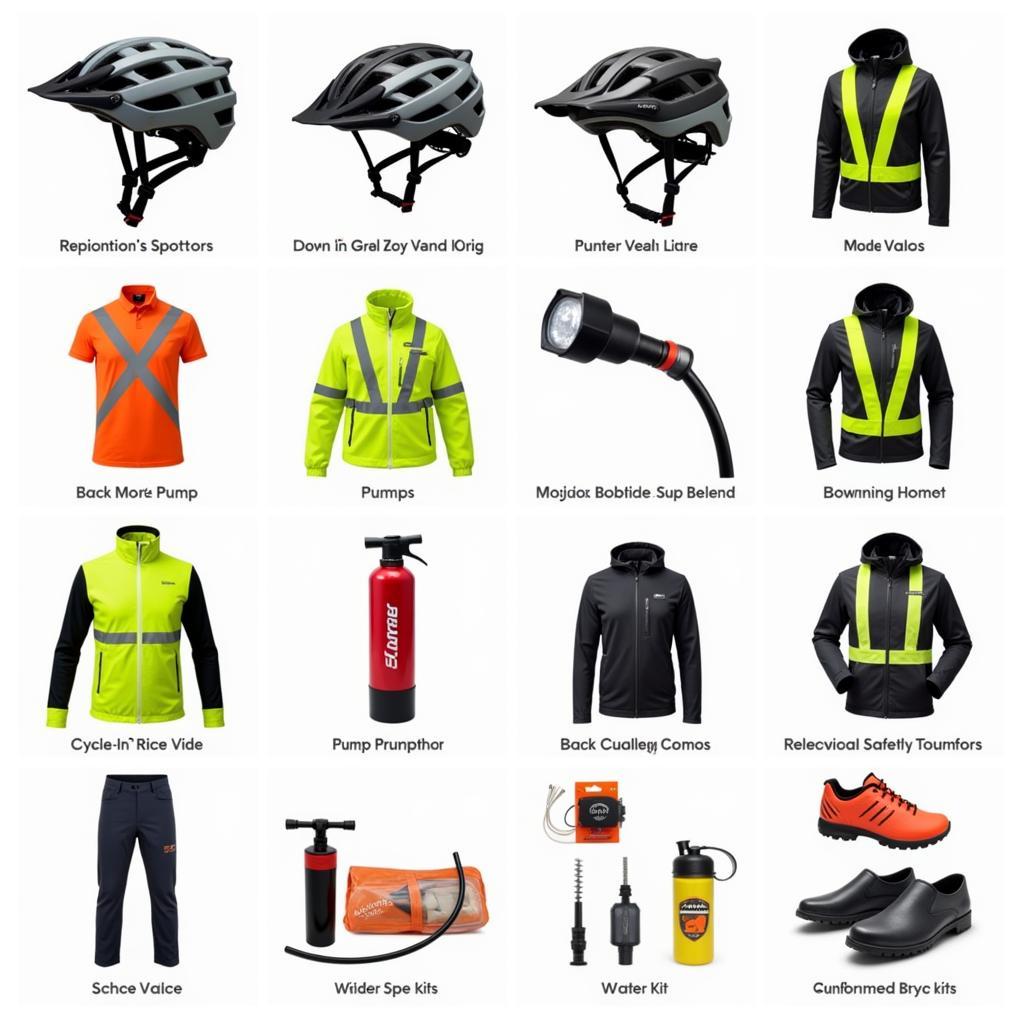Giỏ hàng hiện tại chưa có sản phẩm nào!

Cycling IELTS Speaking
Talking about cycling in your IELTS Speaking test? This guide covers everything you need to discuss cycling effectively, from vocabulary and common topics to sample answers and helpful tips.
Cycling is a popular topic in the IELTS Speaking test, often appearing in Part 1, Part 2, or even Part 3. Being prepared to discuss cycling can significantly improve your performance. This guide will help you navigate the various aspects of the topic, providing you with the necessary tools to confidently answer any cycling-related questions. We’ll explore common questions, essential vocabulary, and provide example answers to help you structure your responses.
Common Cycling IELTS Speaking Questions
Here are some typical questions you might encounter:
- Do you like cycling?
- How often do you cycle?
- Where do you usually cycle?
- What are the benefits of cycling?
- Do you think cycling is a good way to commute?
- How popular is cycling in your country?
Vocabulary for Cycling IELTS Speaking
Using specific and varied vocabulary is crucial for achieving a high band score. Here’s some useful vocabulary related to cycling:
- Commute: To travel regularly between work and home.
- Cycle path/Bike lane: A designated path for bicycles.
- Helmet: Protective headgear.
- Gears: Mechanisms that control the speed and effort of cycling.
- Pedal: To push the pedals of a bicycle with your feet.
- Mountain biking: Cycling off-road on rough terrain.
- Road cycling: Cycling on paved roads.
- Traffic congestion: Heavy traffic making movement difficult.
- Environmental benefits: Positive impacts on the environment.
- Health benefits: Positive impacts on physical and mental wellbeing.
Sample Answers and Strategies for Cycling IELTS Speaking
Let’s explore some sample answers for common cycling-related questions:
Do you like cycling?
“Yes, I’m a big fan of cycling. I find it a really enjoyable and efficient way to get around, especially in urban areas. It’s also a great form of exercise and a good way to clear my head.”
How often do you cycle?
“I try to cycle at least two or three times a week, usually on weekends. During the week, it’s a bit more difficult because of work commitments, but I sometimes cycle to the office if the weather is good.”
What are the benefits of cycling?
“Cycling offers numerous benefits. Firstly, it’s an excellent way to stay fit and healthy. It improves cardiovascular health and strengthens leg muscles. Secondly, it’s environmentally friendly, contributing to reduced traffic congestion and air pollution. And finally, it’s often faster than driving in congested city centers.”
It’s important to structure your answers logically and use a range of vocabulary and grammatical structures. Don’t be afraid to personalize your answers and share your own experiences. Remember, the examiner is assessing your ability to communicate effectively in English, not your knowledge about cycling.
Cycling and Other Related IELTS Topics
The topic of cycling can be linked to other common IELTS themes, such as:
- Environment: Discuss the environmental benefits of cycling compared to cars. Similar discussions can be found in articles like ielts speaking environment questions.
- Health: Talk about the health benefits of cycling and how it contributes to a healthy lifestyle. You can find parallels with discussions on health and fitness, such as in the world’s expanding waistline ielts.
- Transportation: Compare cycling with other modes of transport, like cars or public transport. This resonates with topics like bicycle for the world ielts.
- Leisure activities: Describe cycling as a hobby and how it contributes to your leisure time. This relates to topics like do you like sport ielts.
 Cycling Safety Gear and Equipment
Cycling Safety Gear and Equipment
Conclusion
By familiarizing yourself with common cycling vocabulary and practicing answering typical questions, you can significantly improve your performance in the IELTS Speaking test. Remember to speak clearly, use a range of vocabulary and grammatical structures, and personalize your answers to make them more engaging and natural. Relating cycling to broader themes like the environment or health can further enhance your responses. Don’t forget the importance of the development of plastics ielts as a contrasting topic for demonstrating a range of vocabulary and discussion points.
FAQ
- What if I don’t cycle regularly? Be honest! You can still discuss the topic even if you don’t cycle often. Focus on the general benefits and its popularity in your area.
- Do I need to be an expert on cycling? No, you don’t need expert knowledge. The test is about your English communication skills, not your cycling expertise.
- Can I talk about different types of cycling? Absolutely! Discussing mountain biking, road cycling, or commuting by bike can demonstrate a wider range of vocabulary.
- How can I improve my cycling vocabulary? Read articles, watch videos, and listen to podcasts about cycling to expand your vocabulary.
- What if I can’t remember a specific word? Don’t panic! Try to paraphrase or use simpler words to convey your meaning.
For further support, contact us at Phone Number: 0372960696, Email: tuyet.sixt@gmail.com Or visit us at: 260 Cầu Giấy, Hà Nội. We have a 24/7 customer support team.